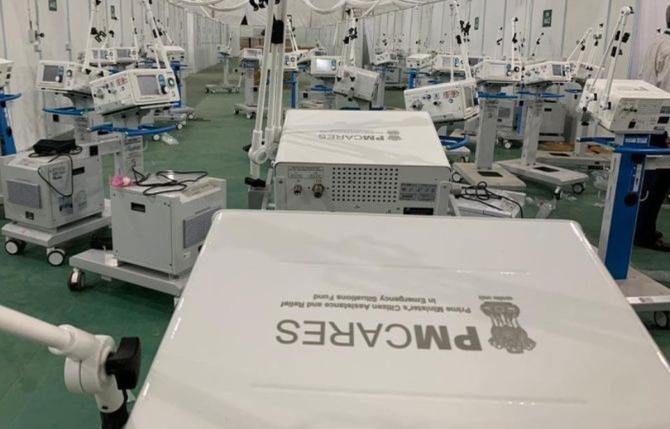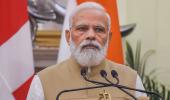The Delhi high court on Thursday stayed an order of the Central Information Commission directing the disclosure of certain information about the PM CARES Fund to an RTI applicant.

Justice Yashwant Varma issued notice on the challenge to the CIC order by the Income Tax Authority and sought the stand of the RTI applicant Girish Mittal, saying that “the matter requires consideration.”
The high court said that if two out of four questions asked by the respondent fell within the exemptions under the Right to Information law -- as held by the CIC, the other two questions would also prima facie follow the same principle, and the direction under the challenge would be inconsistent and contradictory.
“On a more fundamental plane, the court notes that the directions issued with respect to questions (a) and (b) which were submitted would be wholly inconsistent and contradictory to the findings returned with regard to questions (c) and (d) which were held to be exempted in light of the provisions of Section 8(1)(j) of the Right to Information Act, 2005. As this court peruses the questions which were put up before the Department, if the question (c) and (d) fell within the exemptions contemplated under Section 8(1)(j), prima facie, the same principle would apply to questions (a) and (b) also,” said the court.
While Questions (a) & (b) concerned certain information pertaining to the exemption application in relation to PM CARES Fund and file notings granting the approval to it, questions (c) and (d) were with respect to the other exemption applications entertained by the income tax authorities.
Section 8(1)(j) of the RTI Act exempts information which relates to personal information the disclosure of which has no relationship to any public activity or interest, or which would cause unwarranted invasion of the privacy of the individual.
“Till the next date of listing, there shall be a stay of the impugned order dated 27 April 2022,” the high court ordered.
It granted eight weeks to the respondent to file his response to the petition and listed the case for further hearing on November 16.
In its order, the court also noted that the issue of whether the PM Cares Fund is a public authority is presently pending before a division bench of the high court.
The respondent had filed an RTI application before the Income Tax Authorities seeking certain information pertaining to an exemption application under the Income Tax Act in relation to Prime Minister's Citizen Assistance and Relief in Emergency Situations Fund (PM CARES Fund) as well as all the other exemption applications filed before the Income Tax Authority from April 1, 2019, till March 31, 2020.
The petitioner said that the CIC order, which refused information pertaining to other exemption applications but issued directions with respect to PM CARES Fund, is contrary to the law and is inconsistent.
“It is well settled that judicial orders must follow a consistent reasoning and therefore if other exemption applications and their decisions were rejected on the ground of section 8(1)(j), there is no reason whatsoever as to why the same principle should not have governed the requests for disclosure of information in so far as Para (a) and (b) of the RTI Application is concerned which deals with a specific exemption application number relating to the PM Cares Fund,” the petition said.
The petitioner stated that the information relates to a third party ie, the PM CARES Fund which is a registered trust and therefore the impugned order could not have been passed without hearing that party.
The respondent said that the PM CARES Fund is a body owned and controlled by the government of India.
In the present case, the respondent's plea for information was first rejected by the Central Public Information Officer on the ground that the information sought was personal in nature and was not related to any public activity or interest, and would cause unwarranted invasion into the privacy of an individual.
The First Appellate Authority upheld the rejection while stating that PM CARES Fund did not fall within the purview of the RTI Act.
Subsequently, the respondent approached the Central Information Commission which refused to provide information pertaining to other exemption applications on the ground that it entailed disclosure of personal details of various third-party entities.
It however directed the CPIO to reply to the respondent indicating the factual position concerning the availability of documents in terms of paras (a) & (b) of RTI application i.e. copies of all the documents submitted in exemption application in relation to PM CARES Fund and file notings granting the approval within 15 days.










 © 2025
© 2025